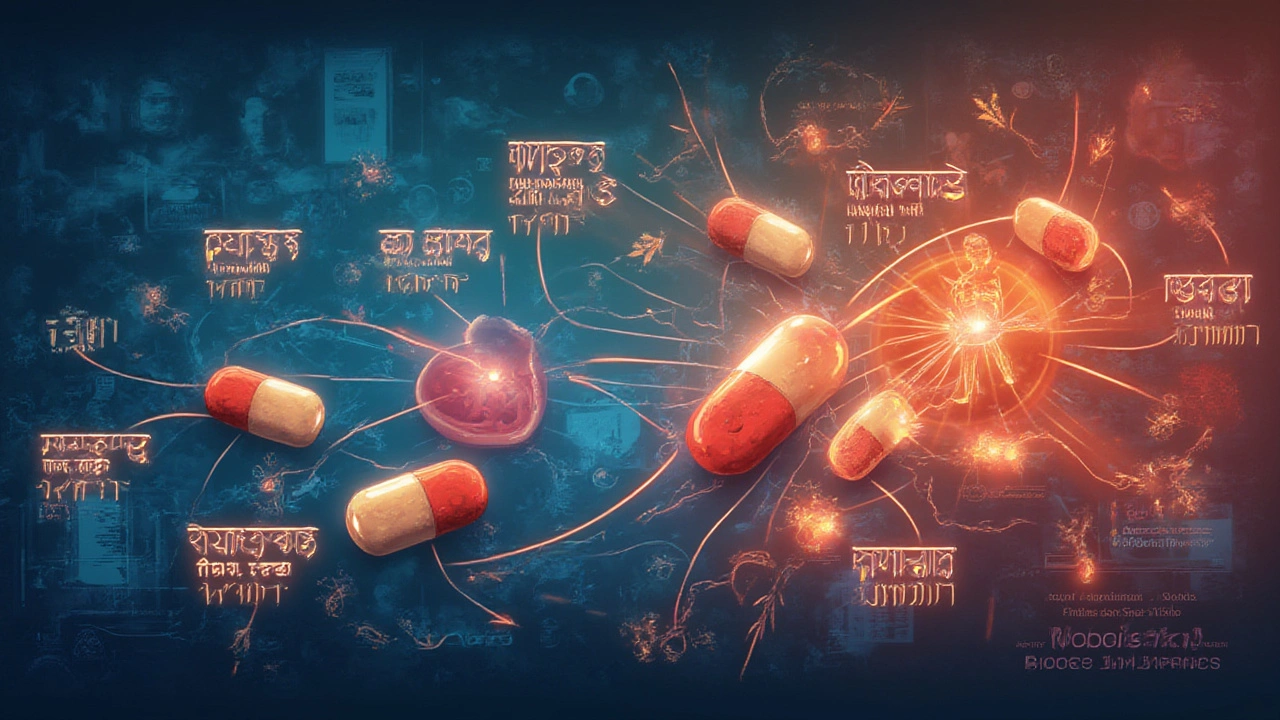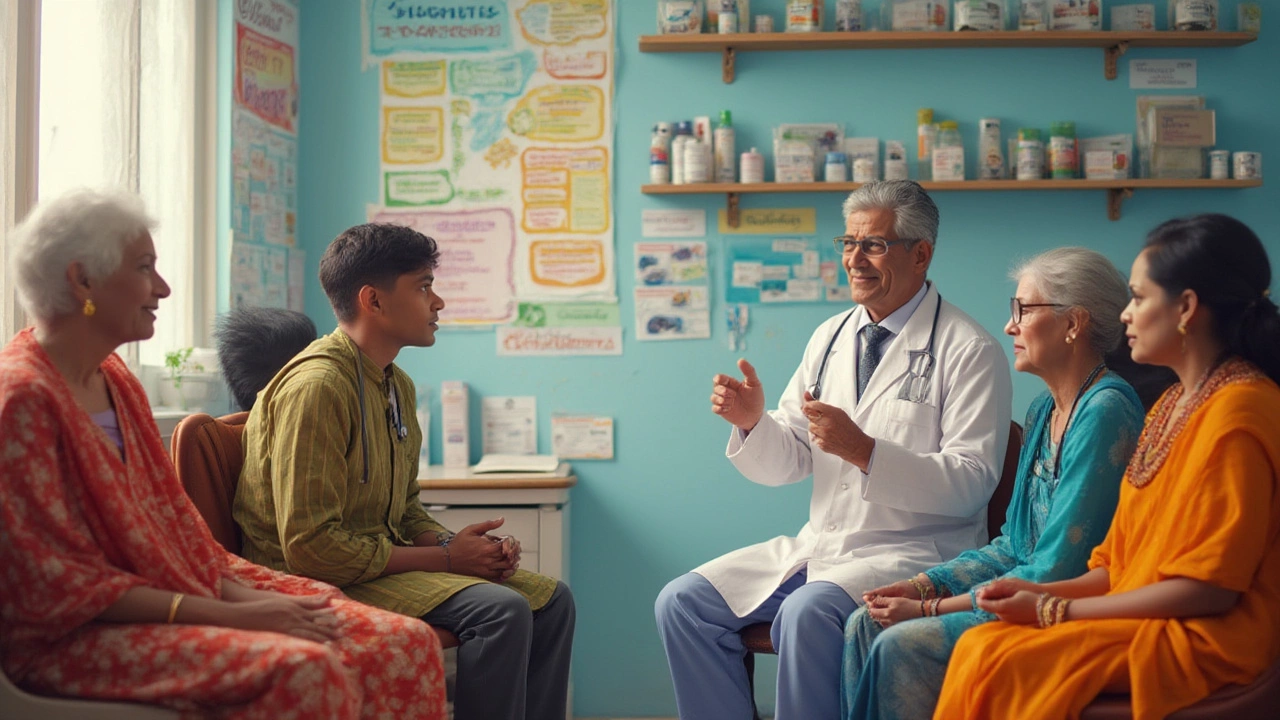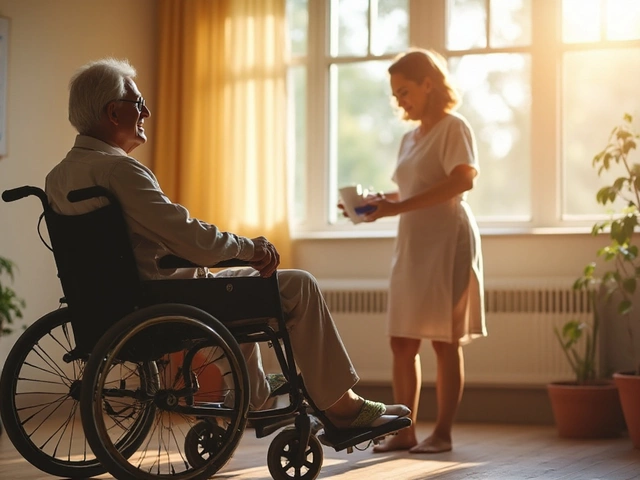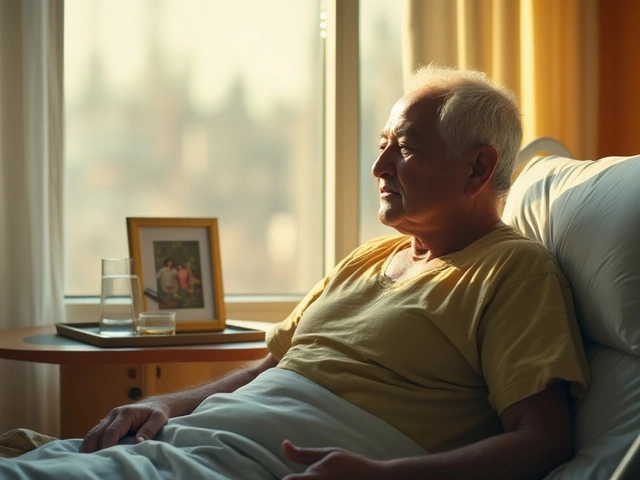Every three seconds, someone in the world is diagnosed with diabetes. Sounds wild, right? The search for the strongest diabetes medicine isn't just about getting sugar numbers down—it's about living better. People want energy for their kids, keeping up with work, hanging out with friends, or even racing their sassy cat up and down the stairs (Bella always wins, by the way). So, which diabetes drugs actually pack the biggest punch?
What Makes a Diabetes Medicine “Strong”?
When people talk about the "strongest" diabetes medicine, they're usually looking for one thing: control. Control over blood sugar swings, nasty side effects, daily routines, and long-term health. But here's the kicker—not everyone needs the same thing. For some, the strongest medicine means bringing runaway sugars into a safe range fast. For others, it might mean keeping things steady with the fewest possible pills or injections.
Most modern diabetes medicines target type 2 diabetes, the kind that creeps up with age, weight changes, or genetics. You still make some insulin, but your body just doesn’t use it very well. There's type 1, too, which is a totally different beast—here, your immune system wipes out insulin-producing cells, so you need injections from day one. When doctors choose a "strong" medicine, they look at how much it lowers blood sugar (measured as HbA1c), how fast it works, whether it causes low blood sugar (hypoglycemia), plus effects on weight, heart, and kidneys.
Now, let’s pull out some actual numbers. According to the American Diabetes Association's 2025 guidelines, medicines that drop HbA1c by more than 1.0% are considered "high efficacy." Older drugs like metformin (the granddaddy of them all) usually knock off about 1.5%. Some of the new combos, however, can push that up closer to 2% or even more.
The convenience factor matters, too. Most people would rather swallow a pill once a day than jab themselves with a needle. That said, sometimes needles are exactly what's needed to get things under control quickly.
The Most Powerful Medicines for Diabetes Today
So, what actually works best? If you asked this question ten years ago, everyone would point to insulin. It’s still the gold standard for quickly lowering high blood sugars, especially in emergencies or for type 1 folks. In 2025, insulin’s still here, but new drugs have come close—some are even winning in categories like weight loss or protecting the heart.
Let’s break down the top players:
- Insulin – No getting around it, insulin can drop blood sugar the fastest. There are different types: rapid-acting for mealtimes, long-acting for all-day coverage, and combination insulins. It's not always the first choice for type 2, but when nothing else works or sugars are sky-high, insulin is the secret weapon. That said, it comes with the risk of low blood sugar and can cause weight gain.
- SGLT2 Inhibitors (like empagliflozin, dapagliflozin) – These clever pills help your kidneys flush out sugar. They’re strong because they lower sugar AND help prevent heart and kidney problems. In studies, empagliflozin dropped HbA1c by about 1% but also cut the risk of heart failure by 30% in people with diabetes and heart disease.
- GLP-1 Receptor Agonists (like semaglutide, dulaglutide) – These injectable (and now some oral) meds have become stars for type 2 diabetes, especially for people dealing with weight issues. Studies show semaglutide can lower HbA1c by 1.5% to 2% and help people lose up to 15% of their body weight. Plus, they protect the heart. More and more, doctors are calling these the "strongest" for the most stubborn cases.
- Metformin – It’s old but still solid, mainly for newly diagnosed folks. It’s safe, cheap, and drops HbA1c by 1-1.5%, but not always enough on its own as diabetes progresses.
- Dual-Action Drugs (like tirzepatide) – This new kid on the block targets two gut hormones instead of one, making it extra powerful for people with high sugars and extra weight. In clinical trials, tirzepatide dropped HbA1c up to 2.5% and gave the largest average weight loss of any diabetes med yet (up to 20% of body weight for some).
Now let’s talk data. Here’s an actual breakdown of how these meds stack up, based on 2025 clinical research:
| Medicine | Avg. HbA1c Reduction | Weight Impact | Heart Benefits |
|---|---|---|---|
| Insulin (basal/bolus) | 1.5-2.5% | Gain 2-5 kg | Neutral/increased risk if overdosed |
| GLP-1 Agonists | 1-2% | Lose 3-15 kg | Reduces events by 13-20% |
| SGLT2 Inhibitors | 0.7-1% | Lose 2-5 kg | Reduces heart failure 30% |
| Dual GLP/GIP (tirzepatide) | up to 2.5% | Lose 8-20 kg | Prevents events, still under study |
| Metformin | 1-1.5% | Neutral to slight loss | Modest risk reduction |
Pills or shots, oral semaglutide even made headlines in 2024 when the FDA approved it for both diabetes and weight loss—talk about a game changer. But here’s a tip: the “strongest” doesn’t always mean best for everyone. If you hate needles or have kidney trouble, your doctor might avoid certain meds even if they’re super-effective elsewhere.

Which Is Best for You? Matching Medicine to People
No two people with diabetes are the same. A medicine that’s a lifesaver for one person could cause issues for another. That’s where your doctor earns their keep, sorting through all the options to find what’ll work for you right now—then tweaking things as your body, lifestyle, and needs change.
Here’s how it usually plays out:
- If you’ve just been diagnosed with type 2 diabetes and your sugars aren’t off the charts, metformin probably comes first. It’s gentle, safe for most, and plays well with other meds if needed.
- If you already have heart or kidney risks—or your A1c is stubbornly high—SGLT2 inhibitors or GLP-1 drugs may join the game early. Strong evidence now shows these help people live longer and avoid hospital trips.
- If you struggle with obesity, newer GLP-1 analogs or tirzepatide pull double-duty. The weight loss they cause beats anything else you can get at the pharmacy.
- Some need insulin from the start, especially with type 1 or severe type 2. It's unmatched for cutting high sugars but takes effort (and some bravery, honestly) to learn the ropes.
Mind your side effects. Strong drugs can have strong side effects. GLP-1s, for example, often start with nausea or stomach issues—no one tells you about that before you read the fine print. SGLT2 inhibitors make you pee more (and can raise UTI risk). Insulin can cause low blood sugar if not balanced well with meals. Talk through these with your doc, weigh what matters most, and know there’s usually a workaround if something doesn’t agree with you.
By 2025, more insurance plans are covering newer meds, but costs still bite. Drug coupons and patient assistance programs can help. If something’s crazy expensive at the pharmacy, don’t give up—ask your pharmacist about cheaper alternatives or generics.
And yes, lifestyle is still half the battle. Some of the newest medicines are so strong that they let you eat a more normal diet and still get the benefits, but don’t toss your walking shoes just yet. Staying active makes every medicine work better.
Tips for Getting the Most from Your Diabetes Treatment
Let’s get real—taking your medicine right, adjusting your routine, and being a bit more obsessed with the numbers can make as big a difference as the drug itself. Here’s what I’ve seen help people most, and a few tricks I picked up dodging Bella the cat while juggling my own health readings:
- Check your blood sugar as often as your doctor says, especially when starting something new. Numbers tell the story that your symptoms might not.
- Ask your doctor to explain why they're choosing a certain medicine. The right "why" makes it easier to stick with, especially if side effects hit.
- If you're struggling with cost, ask about patient assistance—even big pharma is finally getting better at this in 2025.
- Watch for warning signs of low blood sugar on insulin or sulfonylureas: sweating, shakes, confusion, even a racing heart. Carry a snack just in case.
- Don’t ignore your other numbers—blood pressure and cholesterol matter too, since most people with diabetes eventually have issues here.
- Set small, realistic goals. Whether it’s using a CGM (continuous glucose monitor) or just writing down your blood sugar once a day, consistency pays off.
- Stay curious. New drugs and tech show up every year. Telemedicine and online support groups are exploding, too, so reach out if you’re feeling stuck.
- Remember pets make great accountability buddies. My Bella has a sixth sense for when I'm stressed—sometimes what you really need is a purring cat to help you break the cycle.
The short story: the strongest diabetes medicines in 2025 are powerful, flexible, and designed to protect more than just your blood sugar. The real magic happens when you and your doctor work like a team, picking and tweaking the mix until you get a plan that actually lets you live life on your terms.





